The United States Food and Drugs Administration (FDA) establishes that mineral water should have at least 250 mg/L of total dissolved solids (TDS). Additionally, brands should bottle the water directly at the source without adding any extra minerals after the water is collected.
Depending on the water source, the TDS count and electrolytes (referring to healthy minerals like calcium, magnesium, and potassium) of mineral water may vary. These two aspects affect the water’s taste and suitability for different consumers.
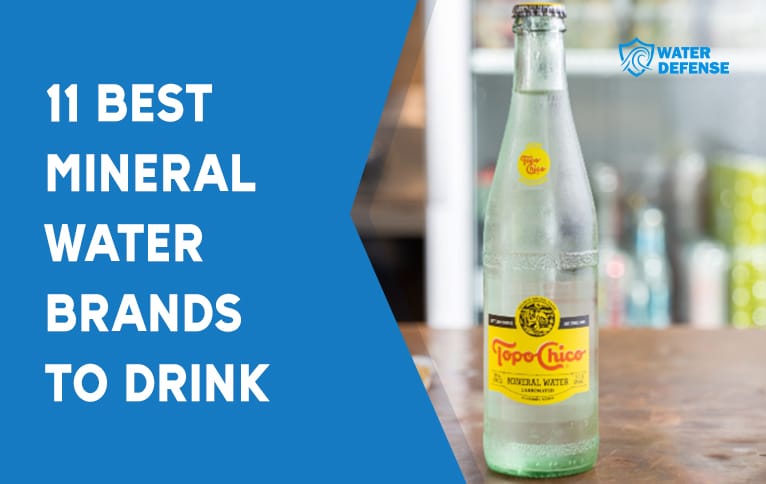
This article explores the best mineral water brands and provides ample information regarding their taste and mineral content so you can pick the brand you think will work best for you.
1. Gerolsteiner Naturell
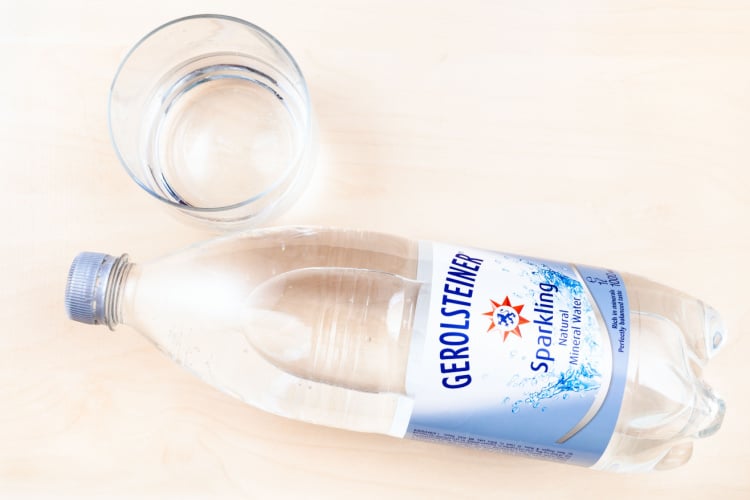
If you’re in the market for water with a medium TDS count but high calcium and magnesium presence, Gerolsteiner Naturell is the best choice.
The water is sourced at Volcanic Eifel near the volcanic craters of the Rhenish Slate Mountains and basalt lakes in Rheinland-Pfalz. Rainwater that falls on the mountains seeps through Earth and passes mineral-rich dolomite rocks with natural filtration properties.
These rocks provide the water with 2,527 mg/L of TDS. Additionally, the water has 348 mg/L of calcium (more than one-third of the daily calcium intake recommendation) and 108 mg/L of magnesium (more than one-fourth of the recommended daily levels).
As the water reaches a depth of 70 kilometers during its underground journey, it’s also enriched with natural carbon dioxide.
The carbon dioxide carbonates the water naturally, making it similar to sparkling water and slightly acidic with a pH value of 5.9.
As a result, the water has a bold and vibrant taste and a robust mouthfeel. Yet, its 118 mg/L of sodium make it too salty for some and unsuitable for people with cardiovascular issues on a low- or no-sodium diet.
Lastly, Gerolsteiner Naturell mainly does glass bottles, but you may also come across PET ones.
2. Vichy Catalan
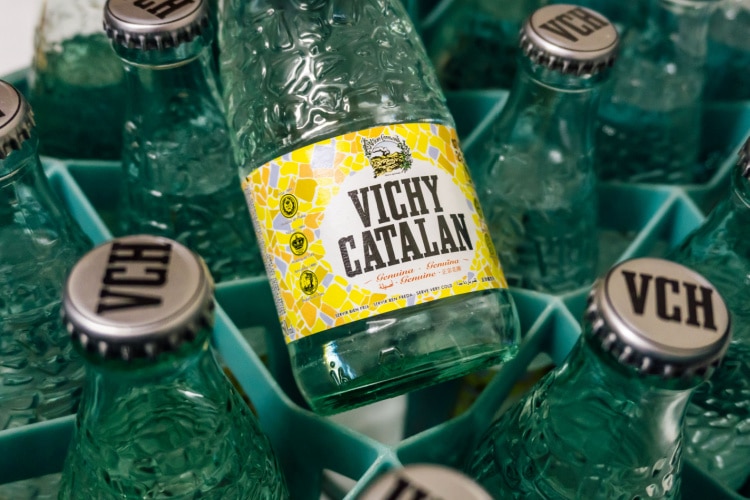
Vichy Catalan is one of the most popular, pioneering mineral water brands from Spain. The water is mineral-rich, with a TDS count of 2,900 mg/L.
The brand sources its water from two springs in Caldes de Malavella, an area populated since prehistoric times. Even before 1881, when Dr. Modest Furest Roca discovered and commercialized this spring water to be sold in pharmacies around Europe, the locals knew of the springs’ medicinal value.
Where does the value of Vichy Catalan mineral water come from?
The water emerges from under the ground at 60°C (140°F).
Unlike most mineral waters primarily rich in calcium and magnesium, Vichy Catalan stands out with only 6 mg/L of calcium and 14 mg/L of magnesium.
However, it compensates with high potassium (51 mg/L) and chloride (584 mg/L) levels, which make it one of the most potassium- and chloride-rich mineral water brands available.
These electrolytes are crucial in maintaining health, particularly for regulating heartbeat and supporting nerve function.
Vichy Catalan is not acidic despite being naturally carbonated. Instead, it has a pH of 8, making it slightly alkaline.
3. Evian
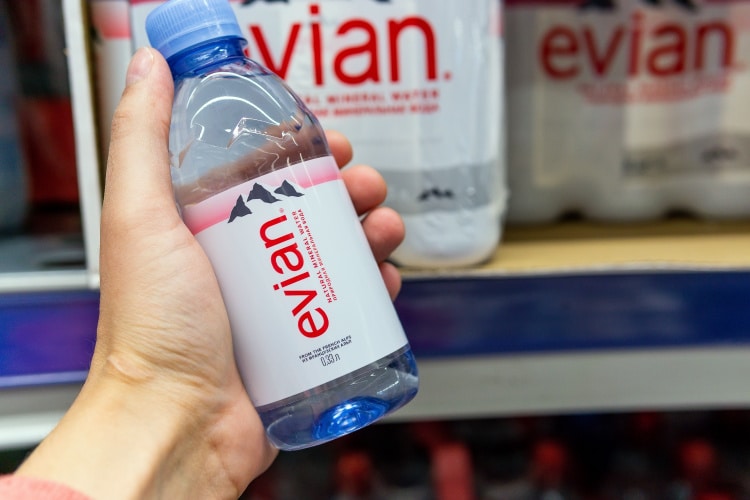
Evian is considered spring water due to its smoother taste and broader consumer range than other mineral water brands. However, it contains 345 mg/L of TDS, which is more than enough to categorize it as mineral water.
If you don’t want to miss out on the benefits of mineral water but can do without its signature bitter taste, Evian is what you’re looking for.
Like Gerolsteiner Naturell, Evian is mountain water. The rainwater and snowmelt from the French Alps travel through porous glacial rocks that naturally filter it and imbue it with minerals.
When this body of water emerges at Évian-les-Bains, it contains 80 mg/L of calcium, 26 mg/L of magnesium, and 15 mg/L of silica. Its silica content is what gives it a light taste and a smooth mouthfeel.
Additionally, Evian has a neutral pH value of 7.2.
Finally, the brand makes an effort at sustainability. Head to their website to learn about their production process, source protection, and carbon neutrality.
4. San Pellegrino
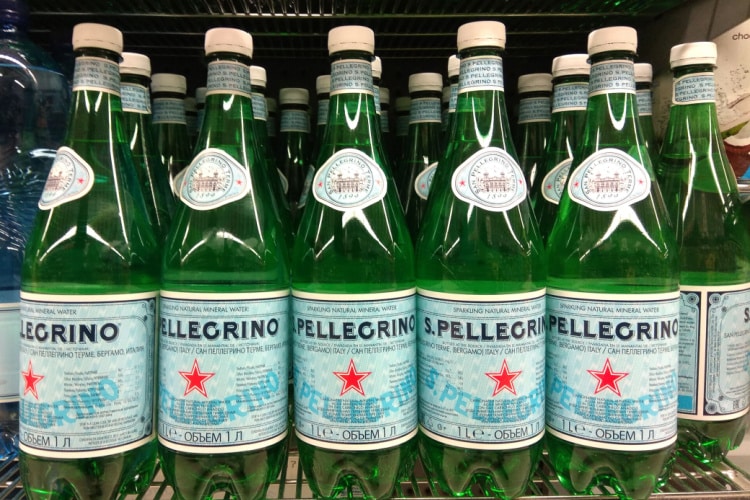
While the overall mineral makeup of water is essential, we shouldn’t forget that nowadays, we drink mineral water mostly to relieve our digestion problems. And San Pellegrino is one of the best brands for digestion.
Like Evian, San Pellegrino sources its water from the Alpine Mountains, just not from France — from Italy. The rainwater and snowmelt from the Italian Alps travel through porous rocks that filter it and give it its signature mineral and flavor profile.
When the water emerges at San Pellegrino Terme, in Val Brembana territory, it has a medium-to-rich mineral body with a total dissolved solids count of 1,109 mg/L. Its minerals are mostly sulfates with 410 mg/L, so San Pellegrino is digestion-friendly.
It also contains other electrolytes:
- 160 mg/L of calcium
- 53 mg/L of magnesium
- 47 mg/L of chloride
During its journey, the water also gets naturally carbonated. With a pH of 5.6, it’s one of the most acidic mineral water brands.
5. Badoit
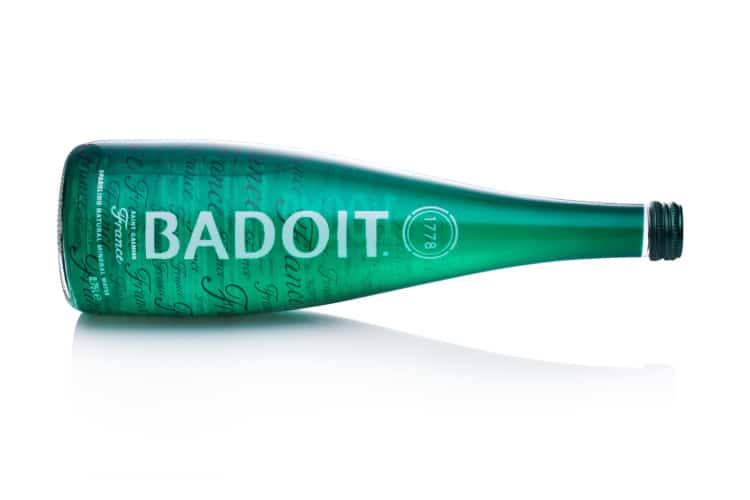
Badoit originates from St. Galmier, France, and its mineral-rich and naturally carbonated spring has been known since Roman times. With its first bottle produced in 1778, it’s also one of the first still-active mineral water springs to have been commercially bottled.
Similar to San Pellegrino, Badoit has a medium mineral intensity with 1,200 mg/L of TDS. Among the electrolytes it contains, bicarbonates occupy the top spot, with 1,300 mg/L.
Badoit boasts healthy amounts of calcium and magnesium, with 190 mg/L and 85 mg/L, respectively. It’s also naturally carbonated with a pH of 6, making it slightly acidic.
Despite its mineral content, Badoit doesn’t taste bitter. On the contrary, it’s one of the smoothest, gentlest, and lightest mineral water brands on the market.
Even better, the brand bottles its water only in classy green glass bottles.
Sadly, Badoit may disappear from the market or change its source soon. The area where it’s sourced has undergone droughts, so the Badoit aquifer is prone to over-drawing.
6. Three Bays
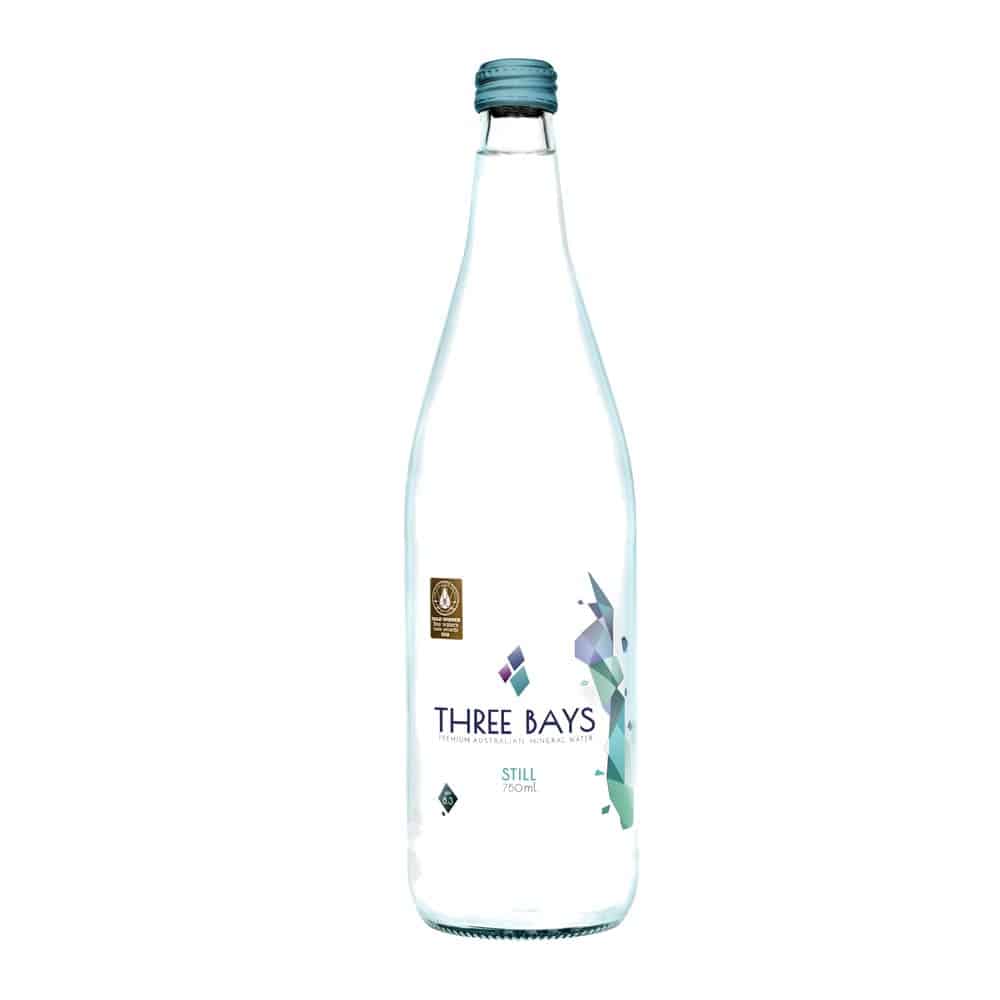
Calcium, magnesium, bicarbonates, sulfates, chloride, sodium, and potassium are the most common electrolytes in mineral water, but there are many other electrolytes. Rare electrolytes are seldom found in bottled mineral water, yet Three Bays is an exception.
The spring Three Bays sources its water from is in Australia, on the southern coast of Victoria. The water makes an epic journey for two thousand years underground before it’s bottled. During this journey, the rock formations it passes through naturally filter it and imbue it with twenty different electrolytes.
Some of the rare electrolytes found in Three Bays bottles include iodine (good for thyroid issues), zinc (strengthens the immune system), and, the rarest of the bunch, vanadium (associated with a variety of functions, from maintaining blood sugar to regulating bone growth).
Its common mineral makeup is balanced and health-friendly. It contains:
- 64 mg/L calcium
- 92 mg/L magnesium
- 300 mg/L bicarbonates
- 47 mg/L sulfates
- 450 mg/L chloride
Additionally, it has a silica content of 47 mg/L, giving it a smooth texture and light mouthfeel, and is naturally alkaline with a pH of 8.3.
7. ROI
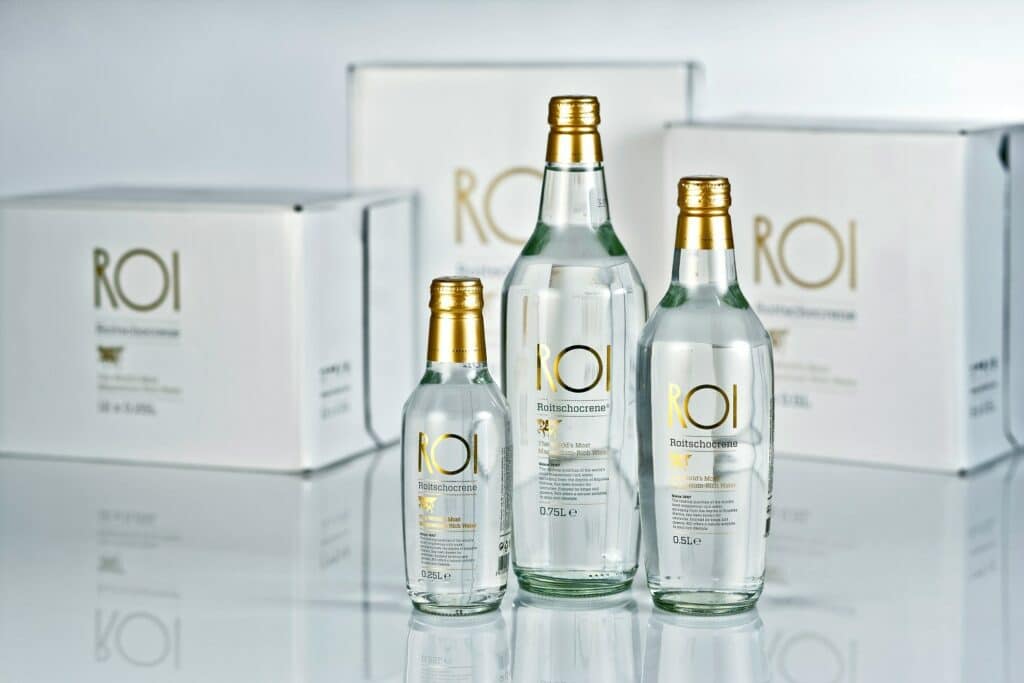
The Slovenian mineral water brand ROI is truly historic. Not only has the spa and the accompanying hotel, Roitschocrene, accommodated the likes of Napoleon Bonaparte in the past, but the spring is also the subject of legends rooted in ancient times.
The legends claim that Pegasus, the mythic flying horse, opened the Roitschocrene spring by striking its hoof on Rogaska, the Slovenian town near it, following the instructions of Apollo, who wanted to give the people of the area a source of healing.
You can question the truth of that story, but you can’t deny the quality of the water from the Roitschocrene spring. With 1,300 mg/L, ROI is the most magnesium-rich water on Earth — it yields four times more than the daily magnesium recommendation.
It’s also one of the mineral water brands with the highest TDS count — 7,481 mg/L. Some of its mineral content includes:
- 2,100 mg/L of sulfates
- 600 mg/L of calcium
- 83 mg/L of chloride
- 24 mg/L of potassium
Lastly, it has a more or less balanced pH value of 6.8.
8. Topo Chico
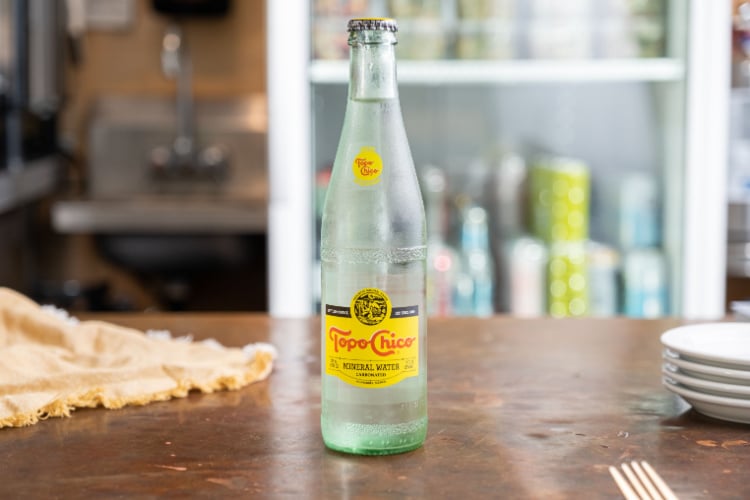
Since its commercialization in 1895, Topo Chico, a Mexican mineral water, has garnered a dKind Water Systemsted following in the vicinity of its source near the majestic Cerro del Topo Chico mountain in Monterrey.
Similar to ROI, the history of Topo Chico is steeped in myth. For example, rumor has it that the daughter of the Aztec Emperor Moctezuma was sick until she drank and bathed in the water from the Topo Chico spring.
However, the TDS count of Topo Chico is not as high as ROI’s. On the contrary, with only 630 mg/L, it’s one of the lowest TDS mineral water brands on our list.
The consumers of this mineral water love its mild flavor. That’s probably due to its low sodium content of 41 mg/L compared to other mineral water brands.
That said, Topo Chico is slightly acidic with a pH of 5.6.
9. Nevas
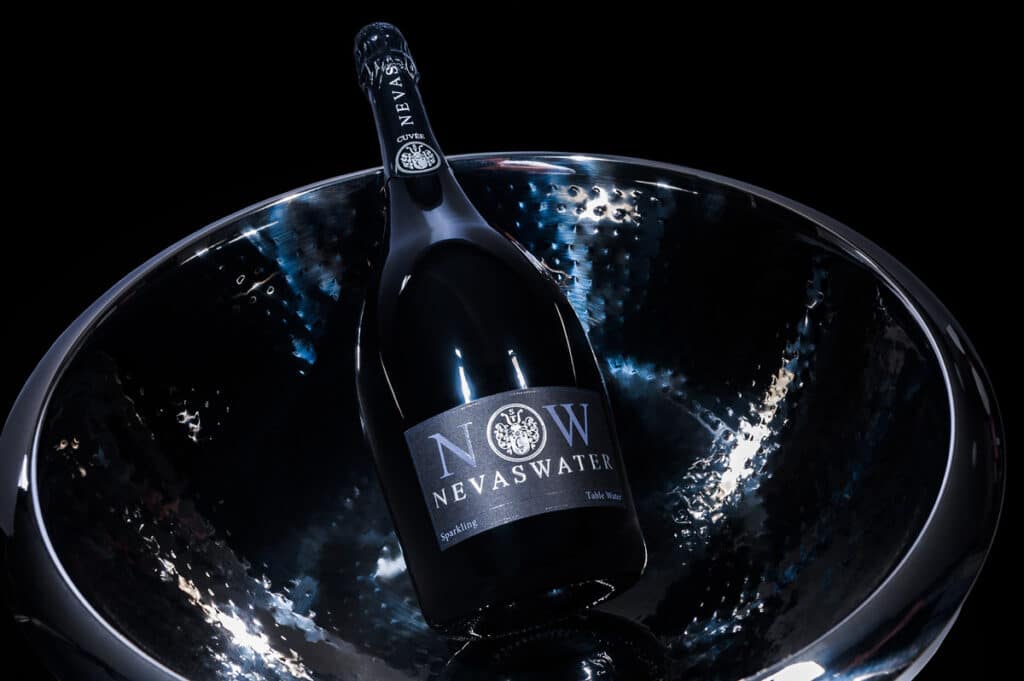
Nevas is a modern mineral water brand from Germany founded in 2017.
As a newcomer on the block, the brand has an innovative approach.
Firstly, the Nevas water doesn’t come from a single spring, distinguishing it from all the other water brands on our list but one.
Secondly, even if a brand uses two or more springs, they usually bottle their water at each spring separately. But not Nevas — they source the mineral water from two different springs and then blend it before packaging.
The result is mineral water with a champagne-like texture and a taste reminiscent of white wine.
Additionally, the brand employs dark and bulbous glass bottles for containment. These glasses look like champagne bottles.
Thanks to its unique taste, texture, and bottling, Nevas has already established its status as an ultra-premium mineral water brand.
However, the brand doesn’t provide information on its water’s mineral makeup.
10. Saint-Geron
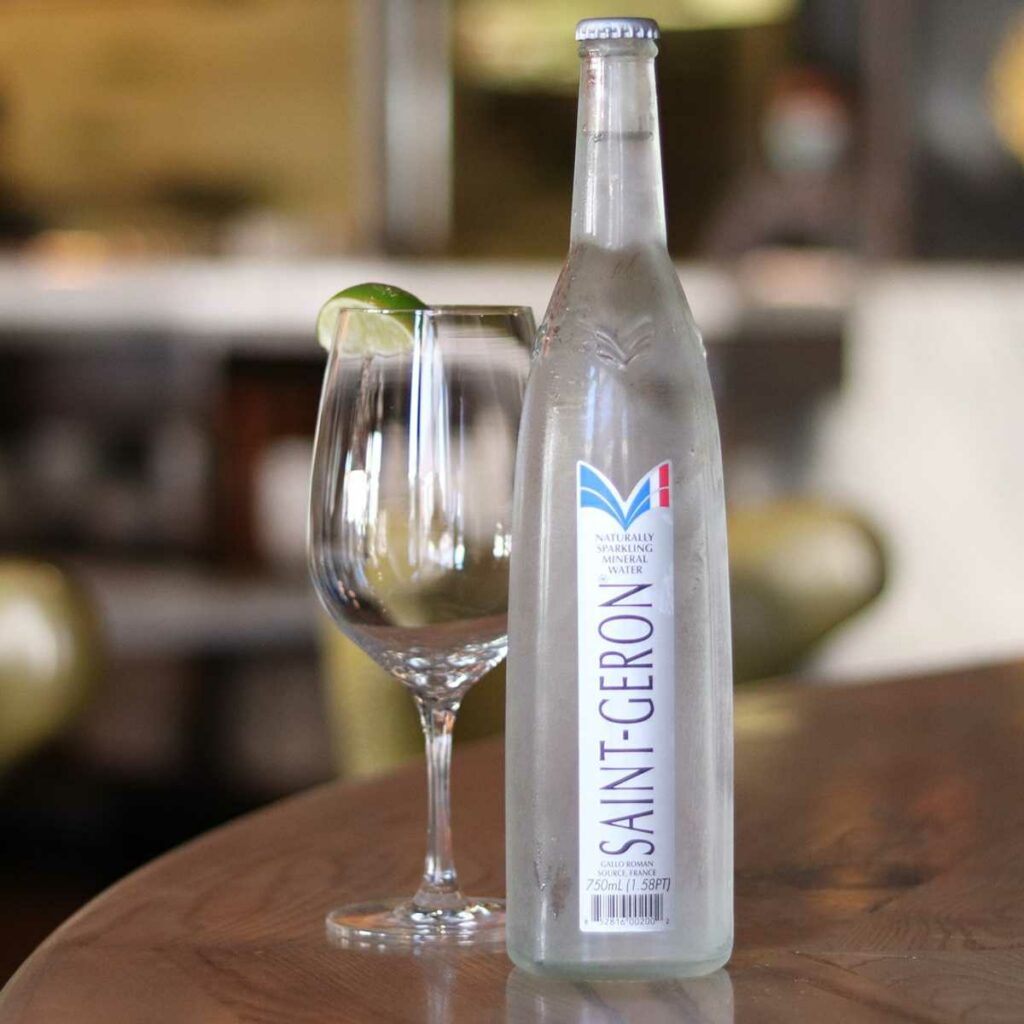
Saint-Geron is another French bottled water brand, hailing from the Auvergne region, whose history dates back to ancient Roman times. However, what allowed large-scale collection from the spring in the 1800s was a human-made rock fault. While this marked the beginning of the spring’s modern-day use, construction workers later discovered antique wells around it, confirming it had been used in ancient times.
The Saint-Geron water voyages through mineral-rich, naturally-filtering rock formations for a millennium before emerging from the spring. The water becomes naturally carbonated during its journey, making it slightly acidic with a pH of 6.
In addition to carbonation, it picks up minerals from the rocks. That being said, its mineral makeup is more balanced than many other brands on our list, giving it a smooth mouthfeel and a light flavor:
- Calcium: 79.1 mg/L
- Magnesium: 53.7 mg/L
- Potassium: 18.4 mg/L
- Silica: 28 mg/L
- Sulfate: 20.4 mg/L
- Chloride: 44.2 mg/L
11. Iskilde
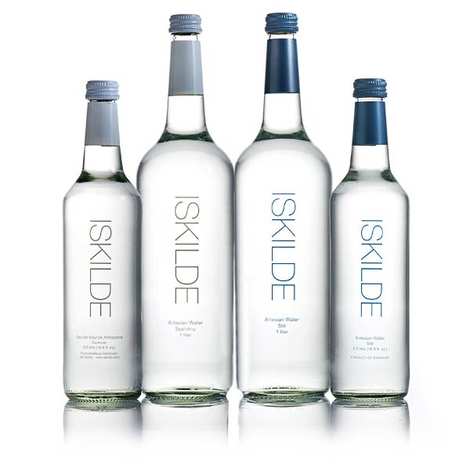
Iskilde is glacial water from the Jutland territory of Denmark, but unlike other glacial water brands (Icelandic Glacial comes to mind), it’s not spring water, nor does it have a low TDS count. Its 440 mg/L of TDS easily puts it in the mineral water category.
Iskilde is a distinct mineral water brand whose taste leans towards sweetness, a word we otherwise wouldn’t use for even the lightest and smoothest of mineral waters.
Its sweetness is, of course, indebted to its unique mineral blend with relatively low calcium (80 mg/L) and magnesium (6 mg/L) levels and medium silica content (22 mg/L).
Additionally, the water has dissolved oxygen in it. When you shake or open the bottle, the color of the water turns milky white, and there are bubbles inside it.
The water also has a balanced pH of 7.5.
The Health Benefits of Mineral Water
The health benefits of mineral water vary from water source to water source and from brand to brand since different water sources have different mineral makeup, and each brand has its source.
However, we can still give you an idea of the health benefits of the most common minerals found in mineral water:
- Calcium maintains bone and muscle health.
- Magnesium regulates nerve and muscle functions, blood pressure, and biochemical reactions.
- Potassium helps with urination, bone growth, kidney health, and blood pressure.
- Bicarbonates maintain blood pH.
- Chlorides and sulfates assist the digestive faculties.
Considering our calcium, magnesium, and potassium intakes are way below the recommended levels, drinking mineral water daily could improve many bodily functions.
Most mineral water is also rich in sodium, but we already have too much sodium in our diets. For people with cardiovascular issues, this particular electrolyte is a problem since it increases the risk of heart attack. If you’re one of those people, be careful about the sodium levels of your preferred mineral water brand.
